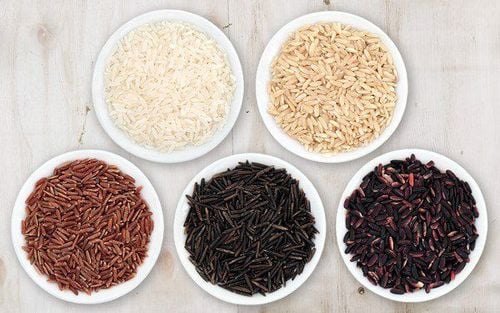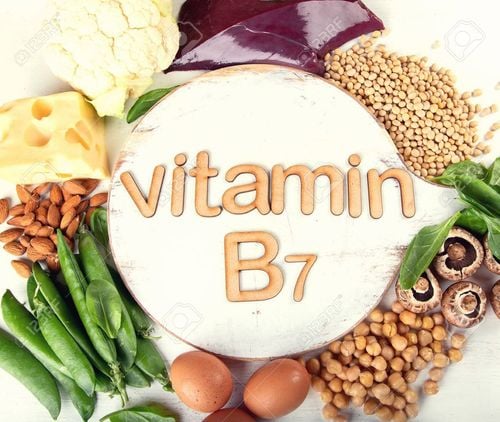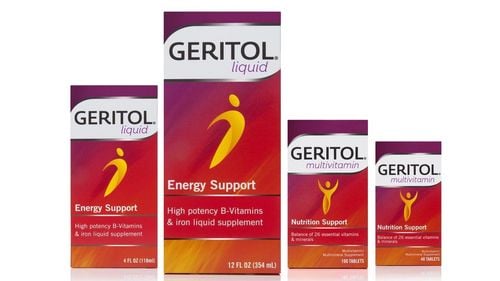This is an automatically translated article.
Vitamins and minerals are two of the main types of nutrients your body needs to stay alive and healthy. Vitamins help your body grow and function as it should. There are 13 vitamins - vitamin A, vitamin C, vitamin D, vitamin E, vitamin K, and B vitamins (thiamine, riboflavin, niacin, pantothenic acid, biotin, vitamin B6, vitamin B12 and folate). Vitamins have different tasks, vitamins help you fight infections, keep your nerves healthy and help your body get energy from food or your blood to clot properly. Minerals also help your body function. Some minerals, like iodine and fluoride, are only needed in very small amounts. Others, such as calcium, magnesium and potassium, are needed in larger amounts. As for vitamins, if you eat a varied diet, you'll probably get enough of most minerals. In this article, we will provide useful information for users to better understand the role of vitamins and minerals.
Vitamins and minerals are essential micronutrients of the body, they are responsible for participating in many activities such as cell structure, energy metabolism as well as all vital activities of the body. However, these nutrients are not created in each person's body, but must be supplemented from external foods such as fruits, vegetables and other foods that people put into the body every day.
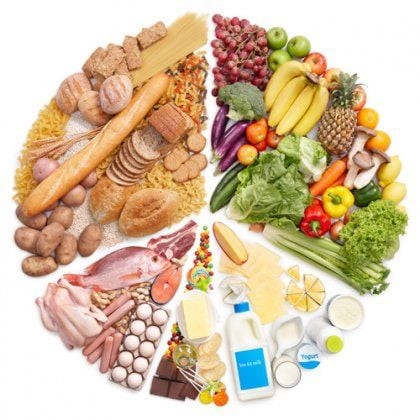
Vitamin và khoáng chất đóng vai trò quan trọng cho cơ thể
1. What are vitamins?
Vitamins are organic substances that are usually fat soluble or water soluble. Vitamins are divided into two groups: fat-soluble vitamins and water-soluble vitamins. Typical fat-soluble vitamins such as: Vitamin A, vitamin D, vitamin E and vitamin K), these vitamins are fat-soluble and tend to accumulate in the body. Water-soluble vitamins like vitamin C and B-complex vitamins (vitamin B6, vitamin B12 and folate) need to dissolve in water before they can be absorbed by the body, which is also why they can't be absorbed by the body. stored in the body. Any water-soluble vitamins that the body can't use will be lost through the urine.Vitamins have many different types with distinct functions such as:
B vitamins: stimulate eating, make skin and hair shiny, especially contribute to the development of the nervous system. Vitamin A: helps brighten eyes, fight against the aging process of the body. Vitamin C: slows down oxidation, is widely used in dermatology, has the ability to increase the strength of blood vessels, and is used in the treatment of hemorrhagic diseases. Vitamin D: together with calcium helps to stimulate the growth of the skeletal system. Vitamin D deficiency will cause bone and joint diseases such as rickets, curved spine, delayed teething... Vitamin E: related to skin and blood cell diseases. Vitamin K: is one of the important factors involved in blood clotting. Vitamin K deficiency makes blood difficult to clot, wounds will bleed continuously.
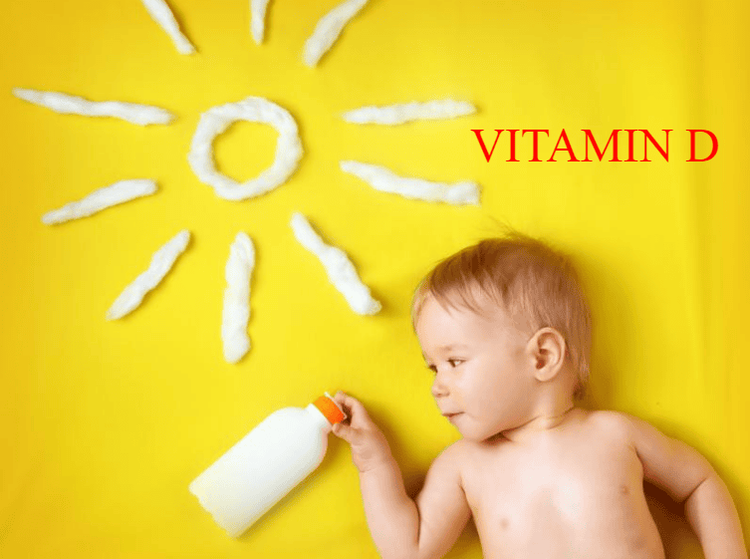
Vitamin D có lợi cho hệ xương khớp của trẻ
2. What are minerals?
Minerals are inorganic elements found in soil and water, they are absorbed by plants or consumed by animals and then exist in those animals and plants. Besides minerals commonly mentioned in daily life such as calcium, sodium and potassium, there are other minerals, including trace minerals such as copper, iodine and zinc with high concentrations. very small but necessary for human life.
Some typical minerals such as:
Magnesium: necessary for the function of the digestive system, especially muscle contractions and nerve impulses. At the same time, magnesium is also involved in blood sugar control, blood pressure regulation, and bone health maintenance. Selenium: is a component of the enzyme glutathione peroxidase, which affects all components of the immune system, affecting the development of white blood cells. Selenium deficiency causes immunosuppression, impaired white blood cell function, and prevents metabolic disorders in the digestive system. Iron: necessary for the production of blood cells. Iron deficiency will cause anemia, hair loss, headache, dizziness. Zinc: stimulates the activity of enzymes, supports the immune system, protects taste and smell, is involved in DNA synthesis. Chloride: is a special mineral in the body, is a component of gastric juice. Chloride along with sodium helps the body balance the fluid system in the body. Potassium: necessary for the central nervous system, also involved in fluid balance in the body. When potassium levels are disturbed, it can cause cardiac arrhythmias. Sodium: in combination with chloride will help balance extracellular fluid, regulate blood pressure In the United States, the National Academy of Medicine (formerly the Institute of Medicine) has developed nutrient reference values known as “Dietary Reference Intakes (DRIs)” for vitamins and minerals. From these reference values, each person can self-assess their own nutrition and adjust their nutrition to improve and maintain their health. It is also considered the scientific basis for the development of food guidelines in both the United States and Canada.
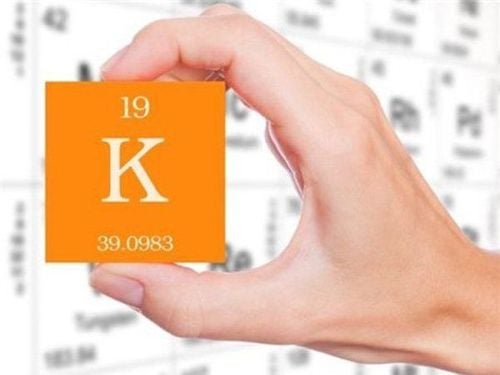
Kali giúp đảm bảo sự ổn định cho nhịp tim
3. The role of vitamins and minerals.
Every day the human body needs to produce cells for each part of the body to develop and maintain health. The nutrient-rich red blood carries nutrients and oxygen to the body's target organs and nourishes them and sustains life. But to do the above, the human body needs a number of raw materials, including at least 30 vitamins, minerals and other ingredients found in the diet that the body cannot produce on its own. sufficient quantity. Vitamins and minerals are considered essential nutrients for the body, they strengthen bones, heal wounds and strengthen the immune system of each person. Besides, vitamins and minerals also help the body easily convert food into energy and repair cell damage.
Vitamins and minerals are considered micronutrients because each person's body only needs very small amounts of vitamins and minerals. However, many people cannot get enough of that small amount, leading to diseases caused by vitamin deficiency such as rickets due to vitamin D deficiency, bleeding gums due to vitamin C deficiency, blindness or poor vision due to vitamin C deficiency. vitamin A deficiency,... It is necessary to fully tolerate all micronutrients because a combination of many micronutrients is required to create a healthy body. For example, if you want to have strong bones, you need a combination of calcium, vitamin D, vitamin K, magnesium, and phosphorus to protect your bones from external influences that lead to fractures. Or to prevent birth defects, pregnant women need folic acid supplements early in pregnancy to help prevent birth defects in the baby's spine and spine.
To ensure that you have a healthy and energetic body, it is extremely reasonable to use an appropriate diet. Scientists have shown that foods such as fruits, vegetables, whole grains, good proteins and healthy fats will provide all the nutritional needs of the body. However, not everyone can manage their own diet, for example, people are aware that multivitamins play an important role for the body, but only a few people can fully meet it. types and content of vitamins for the body.
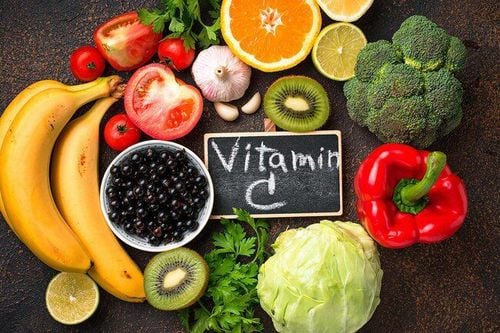
Thiếu vitamin có thể khiến hệ miễn dịch của cơ thể suy giảm
4. The difference between vitamins and minerals
Although both vitamins and minerals are considered micronutrients, in reality, they are completely different. Vitamins are organic and can be broken down by heat, air or acids, while minerals are inorganic, keeping their chemical structure. This means that minerals in soil and water easily enter the body through plants, animals or even in the fluids that people normally use. The transfer of vitamins from food and other sources into the body will be more difficult because in the process of food processing, food preservation or simply exposure to air can also lose its activity. this fragile compound.
However, there are interactions between vitamins and minerals. For example, vitamin D allows the body to get calcium from food sources through the digestive tract instead of taking calcium from the bones, or vitamin C helps the absorption of iron take place faster and more efficiently. However, sometimes the effects of micronutrients do not always cooperate. For example, the fact that vitamin C blocks the body's ability to absorb the essential mineral copper. Even high levels of the mineral manganese can aggravate a lack of color.
For children to be healthy and develop well, it is necessary to have a nutritious diet in terms of quantity and quality balance. If children are not provided with adequate and balanced nutrients, it will lead to diseases of excess or lack of nutrients, which adversely affect the comprehensive development of children in terms of physical, mental and motor skills.
Children who do not eat properly are at risk of micro-mineral deficiency causing anorexia, growth retardation, malabsorption,... If they notice the above signs, parents should supplement their children with products. The supplement contains lysine, essential micro-minerals and vitamins such as zinc, chromium, selenium, and B vitamins to help fully meet the nutritional needs of children. At the same time, these essential vitamins also support digestion, enhance nutrient absorption, help improve anorexia, and help children eat well.
Parents can learn more:
Signs of zinc deficiency in children
Micronutrient deficiency and failure to gain weight in children
Please regularly visit Vinmec.com website and update useful information to take care of your child. Take care of the baby and the whole family.
References: hsph.harvard.edu, helpguide.org





